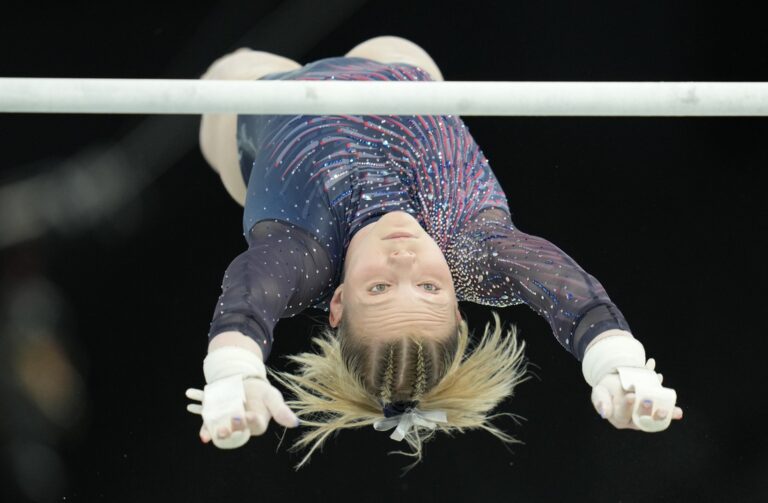 Competing in the Olympics is an expensive venture for American athletes. Mandatory Credit: Kyle Terada-USA TODAY Sports
Competing in the Olympics is an expensive venture for American athletes. Mandatory Credit: Kyle Terada-USA TODAY Sports PARIS – Being a U.S. Olympian is not only physically demanding, but also financially costly.
A recent report found that 26.5 percent of top U.S. athletes earn less than $15,000 a year, according to “Passing the Torch” by the Commission on the State of the U.S. Olympics and Paralympics.
Another 10 percent earn between $15,000 and $25,000.
“Only 50 percent of the elite athletes surveyed said they received any compensation related to their sport, and of those, only 11.5 percent received sponsorships,” said Han Xiao, co-chair of the commission and a former member of the national table tennis team. “Most athletes live on a combination of scholarships, prize money, support from family or partners and salaries from other types of jobs.”
The cost of international competitions (travel, accommodation, equipment, registration fees) is also extremely high. Olympic athletes spend an average of $12,000 per year on related expenses.
Some U.S. Olympic athletes are sleeping in cars or trying to get by without adequate food and nutrition or adequate health insurance, the report said.
“This Olympic cycle is worse than ever,” said Brant Feldman, an agent with American Group Management who represents a number of Olympic athletes including water polo player Maggie Steffens and swimmer Paige Madden. That’s because there are fewer sponsorship opportunities, Feldman added.
“They may sell a lot of ads, but it doesn’t benefit the athletes,” Feldman said. “The athletes live off those ads and are hungry for deals.”
As a result, the cost of survival often ends up being spent on plastic.
One of Feldman’s former clients, for example, couldn’t pay a commission right away because he had racked up $41,000 in credit card debt, covering not only himself but also the other members of his team.
“The number of stories I have personally heard about athletes getting into credit card debt is too many to count,” Xiao said.
Here are some reasons why athletes find themselves in such a financial hole: Olympic committees and sports governing bodies are often cash-strapped themselves; corporations are cutting back on athlete sponsorships; and the United States lacks a robust domestic funding system, which is the norm among competing nations.
Experts advise current and future Olympic athletes that until the system undergoes real change, they should focus as much as possible on seizing this once-in-a-lifetime moment in Paris.
GET QUALITY REPRESENTATION
Being among the world’s best athletes requires 100% focus, which means your flexibility in managing accounts is limited. And while a well-meaning relative may help you with the business side of things, they may not have the know-how or network to take your career to the next level.
“Have a good representative to look for sponsorship opportunities and advocate for you when making deals with sponsors and sports federations,” Xiao advises. “Being an athlete and being an agent are full-time jobs, and it’s very difficult to do both well.”
GROW YOUR BRAND
You might think that being among the best athletes in the world is enough to make money, but it is not enough. You need to work on your personal brand by maximizing your presence on social media.
“For me, athletes who don’t like social media are in trouble,” Feldman says. “Even if you’re only good at one platform, like Instagram or TikTok, you need to put out as much content as possible.”
Also, make sure companies can contact you and get quick responses by providing your agent’s email address in your bio.
Brands often reach out to their customers via direct message on Instagram or TikTok.
“If they don’t get a response, they just move on to the next athlete,” Feldman says.
ACT FAST
For a short time, the eyes of the world will be on you. But it won’t last.
“Once the Olympics are over, we’re going to be moving into the early weeks of college football, NFL exhibition games, baseball pennant races,” Feldman says. “If an athlete wins a medal in Paris, you need someone to be there for you within 72 hours to put you on the map right away… If you haven’t gotten deals in 60 to 90 days, you may have blown your window.”
–Reuters, Special to Field Level Media


